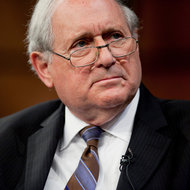Under scrutiny for the long waits that have cost manufacturers — and ultimately consumers — many millions of dollars, Goldman said on Wednesday that its warehouse unit, Metro International Trade Services, would give customers who store aluminum at the warehouses immediate access to their metal.
Through Metro International, Goldman stores vast amounts of aluminum in and around Detroit. An investigation by The New York Times found that Metro routinely shuffled tons of the metal from one warehouse to another, a tactic that profited Goldman but pushed up the price of aluminum across much of the nation.
Goldman also said on Wednesday it would suggest ways to improve the metal storage system, whose rules are dictated by the London Metal Exchange.
Regulators at the Commodity Futures Trading Commission are examining practices at warehouse operations controlled by financial firms and trading houses such as Glencore Xstrata, the Noble Group and Goldman. These operations store aluminum for companies like Coca-Cola and MillerCoors, as well as for speculators.
Congress has taken an interest in the issue as well. Earlier this month, the Senate Banking Committee convened hearings on Wall Street’s push into the physical commodities markets and whether its involvement had raised prices. The Senate Permanent Subcommittee on Investigations, led by Carl Levin, a Michigan Democrat, has also been privately questioning big banks like Goldman, JPMorgan Chase and Morgan Stanley on their commodities businesses.
In Congressional testimony on Tuesday, Mary Jo White, the chairwoman of the Securities and Exchange Commission, said she had asked the agency’s staff to examine the issue.
Goldman said its offer to speed up delivery of metal was open only to industrial customers of its Metro warehouses. If a customer wants immediate delivery of its metal, Goldman said it would go into the open market and buy the amount requested, then swap it to the customer. Goldman said it would pay the difference between the market cost and the higher price that includes the storage premium. Goldman said none of its customers had taken up its offer yet.
Goldman also said that it supported recent efforts at the London exchange to increase the amount of metal allotted for delivery from its large warehouses, like those owned by Metro.
Last week, in the face of rising regulatory concerns about the big banks’ commodities operations, JPMorgan said it was looking to sell its physical commodities businesses, which include sprawling storage and transportation facilities. But Goldman does not appear to be following suit.
In a television interview on Wednesday, Gary D. Cohn, Goldman’s president, said the bank had no immediate plans to sell Metro International. Under the terms of the regulatory exemption provided to Goldman when it bought Metro, the bank has until 2020 to sell it.

Article source: http://www.nytimes.com/2013/08/01/business/under-scrutiny-goldman-offers-to-speed-metal-delivery.html?partner=rss&emc=rss

